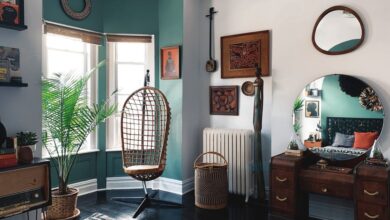A Revival of Black Business, and Pride, in Brooklyn

A survey of business owners by the Census Bureau reported a substantial jump in the number of black-owned businesses nationwide between 2007 and 2012, to 2.6 million from 1.9 million. That boom was driven by women, who account for 59 percent of black-owned businesses, compared to 36 percent of businesses nationwide. Of the 35 entrepreneurs profiled by Black-Owned Brooklyn, 24 have been women.
In New York, though, black entrepreneurs have grappled with municipal invisibility. City officials in the mayor’s office and the Department of Small Business Services were unable to provide comparative data on black-owned businesses in Brooklyn or citywide. “We don’t keep numbers of black-owned businesses,” said Meredith Daniels, a spokeswoman for the Brooklyn Chamber of Commerce. Raul Contreras, a spokesman for the mayor, offered as a stand-in the registry of certified city contractors from the Mayor’s Office of Minority and Women-Owned Business Enterprises; there were 319 black-owned contractors in Brooklyn in 2017, up from 295 in 2015. “A lot of people associate contractors with construction and capital work, but we also work with designers and caterers,” Mr. Contreras said.
The players in Brooklyn aren’t necessarily local. “I came over here on purpose, because of all the gentrification that’s happening,” said Cindy Morris, who uses the professional name Khane Kutzwell. She owns Camera Ready Kutz, a self-described “L.G.B.T.-safe” barbershop in Bedford-Stuyvesant, though she lives in the Far Rockaway neighborhood of Queens. “We have businesses opening up that look pristine and nice,” she added. “So I just truly believe we can do that for ourselves. Why can’t we do that? Why aren’t we doing that? What is the excuse now?”
Shomari Wills, author of the book Black Fortunes and a resident of Bedford-Stuyvesant, said that “buying black” is a concept that has come in and out of fashion over the years. “But today, in a culture that is so polarized and, frankly, racist, there is an urgency to make our dollars socially active,” he said. “Here in Brooklyn it’s amazing that you can go to Beyoncé’s hairstylist, in Bed-Stuy, or Erykah Badu’s hairstylist. Or Carmelo Anthony’s fashion stylist. I live near a black-owned feminist clothing shop, Radical Women. Black businesses tend to be intersectional. They are ready for our intersectional future.”
Economists have a less sunny view of the trend toward more black-owned businesses. Black workers have been harder hit by public-sector cutbacks, said Darrick Hamilton, a professor of economics and urban policy at the New School. “Add to that the biases against hiring blacks in the private sector, and the question becomes: Is it a choice to start a black-owned business, or is it blacks being pushed into limited labor choices?” Asked to explain the tilt of women in black-owned businesses, Mr. Hamilton was similarly blunt: “Black men are busy being incarcerated or, even if they get out, marked by it.”























































